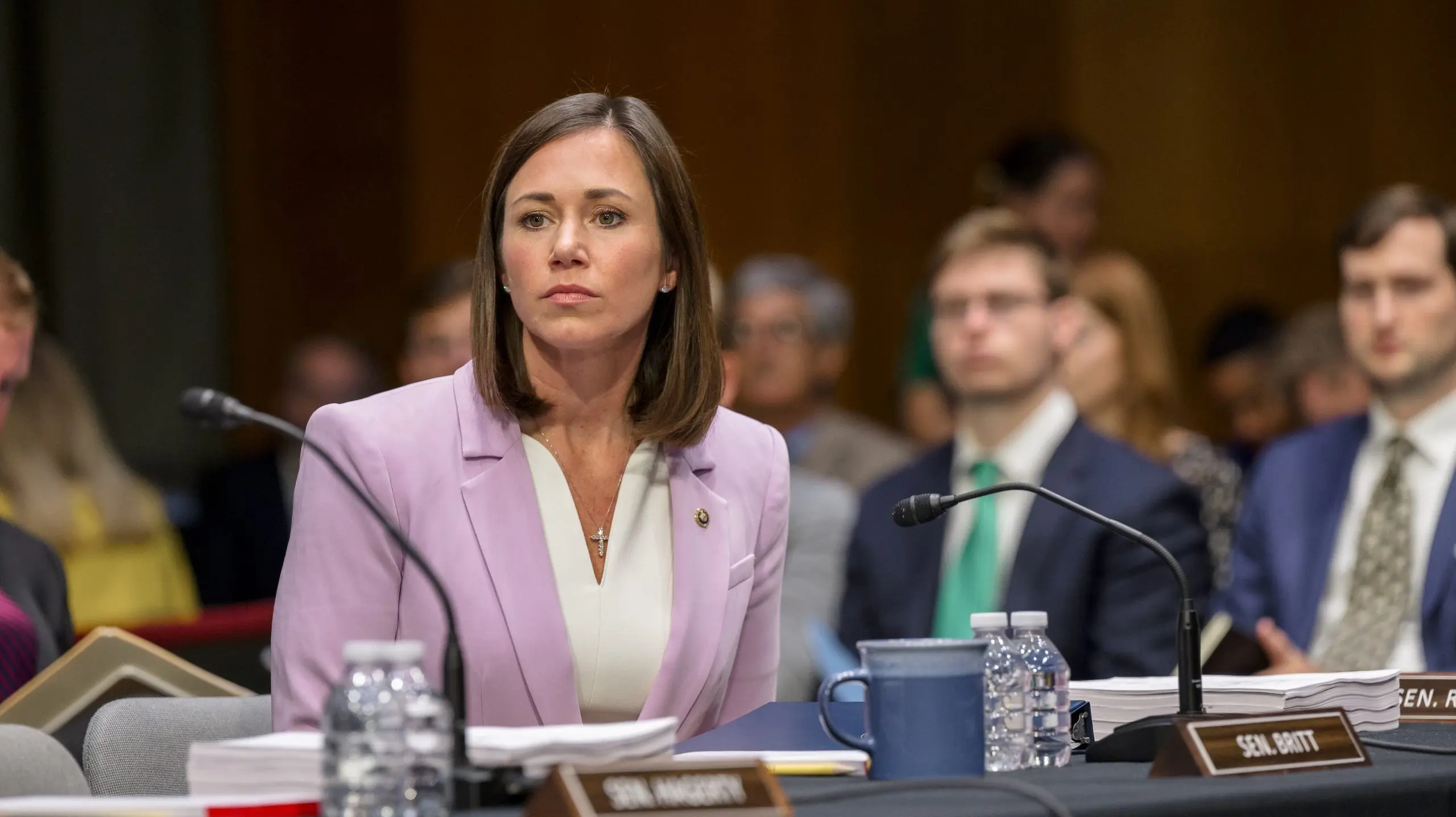|
Getting your Trinity Audio player ready...
|
In a speech on the Senate floor on Tuesday, Alabama Senator Katie Britt criticized the Right to Contraception Act currently being championed by Senate and House Democrats. She called the decision to hold a vote on the bill today part of a “Summer of Scare Tactics” and a “campaign of fearmongering.”
The Right to Contraception Act would enshrine the protections surrounding contraceptive use that have been established by past Supreme Court rulings. The Senate majority leader, Chuck Schumer, called those protections “a critical piece of protecting women’s reproductive freedoms.”
After the Supreme Court’s majority opinion in Dobbs v. Jackson Women Health’s Organization ended the constitutional right to access abortion first established by Roe v. Wade, Congressional Democrats have repeatedly sought to pass legislation protecting other rights the Supreme Court’s 6-3 conservative majority may overturn in the future.
Since Dobbs was decided, six states and Washington D.C. have established state level protections for contraception access, through both additional legislation and ballot referendums.
If the Right to Contraception Act is passed and signed, individuals would have a “statutory right … to obtain contraceptives and to voluntarily engage in contraception, free from coercion, and a health care provider … a corresponding right to provide contraceptives” and related services. A similar bill, HB279, was introduced in the Alabama state legislature in the recent session and reported out of the House Committee on the Judiciary, but never made it to a full vote.
In her speech, Britt claimed that the proposed bill “tramples on foundational religious liberty protections that have long been bipartisan – and truly should remain bipartisan.”
In 2022, when the Right to Contraception Act was first passed by the House, members of the U.S. Conference of Catholic Bishops said the bill contained “extreme and dangerous policy changes” and asked members of Congress to oppose it.
While Britt also pointed out that “contraception is available in every state across the nation,” some Republican politicians and appointees have begun suggesting contraception may be a future target for government regulation.
When asked about potential restrictions on contraception in an interview that aired on Tuesday, former president Donald Trump said his campaign is currently “looking at that” and still deciding on their official policy.
Justice Clarence Thomas’ concurrence in Dobbs listed Griswold v. Connecticut as one of the cases he feels the Supreme Court needs to revisit. Griswold is the 1965 decision that found a Connecticut law restricting married couples from purchasing contraception was unconstitutional.
Britt also contrasted Democrats’ support for the Right to Contraception Act with the public response to the MOMS Act, which she cosponsored and introduced. Supported by many pro-life organizations, if passed the MOMS Act would create a website and grant programs for pregnant mothers.
The MOMS Act was widely panned by Democrats and progressive organizations. A group of twelve Democratic senators, led by Sen. Patty Murray, D-Washington, said the MOMS Act would “push [women] toward anti-abortion propaganda and dangerous crisis pregnancy centers.”
Senate and House Democrats are also planning to hold votes on the Right to IVF Act, a set of bills meant to protect families’ access to in vitro fertilization. Schumer pointed to the “stunningly radical decision by the Alabama Supreme Court” as justification for Democrats’ support of the act.
Britt is a cosponsor of another piece of legislation meant to protect IVF: the IVF Protection Act. The IVF Protection Act would prevent states from receiving Medicaid funding if they ban IVF.
As only 8 Republicans voted for the Right to Contraception Act when it passed the House in 2022, it is exceedingly unlikely that the Right to Contraception Act will be able to pass both chambers now that Republicans hold the majority in the House. However, Democrats will likely continue to try to pass legislation protecting contraception and IVF in the lead-up to the general election in November.
“I look forward to discussing this more next week,” Britt said. “As unfortunately my Democratic colleagues will continue their ‘Summer of Scare Tactics.’”



















































